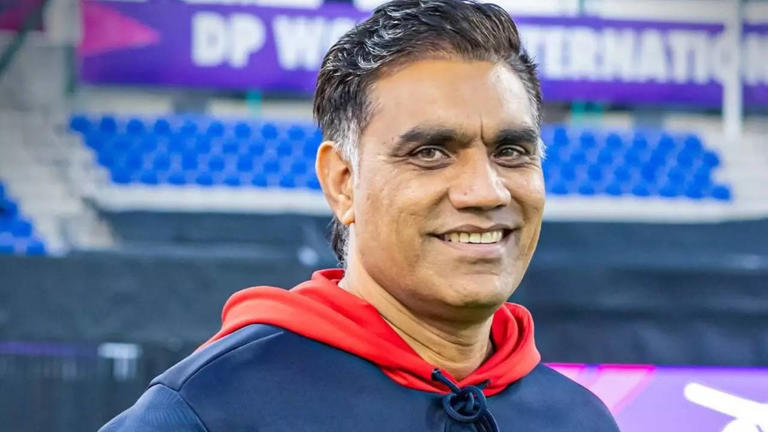Waffle House Franchise Cost Explained: Fees, Investment & More

Waffle House is a beloved American diner-style restaurant known for its 24/7 service, comfort food, and deep roots in Southern hospitality. With over 2,000 locations across the United States, it’s a recognizable brand in roadside and urban settings alike. However, unlike many fast-food chains, Waffle House follows a unique franchising approach that makes owning one a rare opportunity. This guide breaks down the costs, requirements, profits, and what you need to know about becoming a part of this iconic brand in 2025.
Can You Franchise a Waffle House?
Unlike other popular food chains, Waffle House operates largely on a corporate-owned model. Only a small percentage of their restaurants are franchised. The company keeps franchise opportunities limited and typically offers them only to trusted individuals—often those with years of internal experience or long-term partnerships. Public franchising opportunities are no longer actively advertised, making entry into the Waffle House network highly selective.
Total Investment Required
Opening a Waffle House franchise involves significant capital. Although exact figures are kept private due to the company’s selective franchising, industry estimates suggest the total investment required ranges from ₹5 crore to ₹12 crore or $600,000 to $1.5 million, depending on factors such as location, size, and construction costs.
Here’s a general breakdown:
- Franchise fee: ₹1.5–₹2.5 crore
- Real estate and construction: ₹2–₹5 crore
- Kitchen equipment and furnishings: ₹1–₹3 crore
- Initial inventory and supplies: ₹10–₹30 lakh
- Working capital: ₹50 lakh–₹1 crore
- Training, tech setup, and launch marketing: ₹40–₹80 lakh
These costs are reflective of opening a standalone full-service diner-style restaurant, equipped with 24-hour operations and a trained team.
What Are the Ongoing Fees?
Once established, ongoing expenses include royalty payments and marketing contributions. A franchise owner can expect:
- Royalty Fee: 5% to 6% of gross sales
- Marketing & Advertising Fund: 2% to 4% of sales
- Technology support and admin fees: Around ₹1–₹2 lakh per year
- Insurance and maintenance: Variable but important for compliance and safety
Franchisees are expected to maintain quality control, meet operational standards, and participate in regular audits or training updates.
How Much Do Franchise Owners Make?
Though exact revenue figures are not publicly available, estimates suggest that an average Waffle House outlet generates ₹12–₹20 crore (approx. $1.5–$2.5 million) in annual gross revenue. With operating margins around 12% to 18%, franchise owners can expect a net income of ₹1.5–₹3 crore ($200,000–$375,000) annually—after covering all expenses.
These profits depend heavily on location, staffing efficiency, and customer flow. Franchises near highways, colleges, or business hubs tend to perform better than isolated locations.
What Are the Qualification Requirements?
Given the brand’s selective approach, a prospective Waffle House franchisee typically needs to meet high financial and operational standards.
- Minimum net worth: ₹8–₹12 crore ($1–$1.5 million)
- Liquid assets: ₹4–₹6 crore ($500,000 minimum)
- Industry experience: Strongly preferred; many franchisees are promoted from within
- Cultural fit: Alignment with Waffle House’s service philosophy, consistency, and operational discipline
The company places strong emphasis on internal referrals, leadership potential, and long-term operational vision.
What Support Do Franchisees Receive?
Franchisees benefit from a strong, proven system that includes:
- Comprehensive training (typically 8 to 12 weeks) covering all operations—from cooking to cash handling
- Design and construction assistance to ensure brand consistency
- Vendor relationships for all food and supply purchases
- POS and inventory management tools
- On-site launch support during opening
- Marketing assets tailored to the region
Waffle House’s training is regarded as one of the most thorough in the industry, focusing not just on food but on leadership and teamwork.
What Is the Franchise Model’s Biggest Strength?
Waffle House’s franchise model is less about rapid expansion and more about sustainability. Their brand thrives on operational consistency, staff training, and customer familiarity. This slow, steady approach means:
- Franchisees are often long-term operators
- Quality and service consistency remain high
- Customer loyalty is extremely strong, especially in Southern U.S. states
- Financial risk is minimized with steady year-round footfall, particularly during off-hours and holidays
Why Is the Brand So Popular?
Waffle House isn’t just another breakfast joint. It’s woven into American pop culture. Its popularity stems from:
- 24/7 service, especially post-midnight hours
- Affordability and comfort food appeal
- Loyal repeat customers
- Widespread presence along U.S. interstates
- Nostalgia and reliability
These factors ensure stable demand and strong repeat business—core pillars of successful franchising.
How to Get a Waffle House Franchise
Since public applications are rarely accepted, here’s what a prospective franchisee should do if they’re serious:
- Start by gaining experience in the food and hospitality industry
- Network with Waffle House insiders or attend industry events
- Consider employment or management roles within the company
- Build financial credentials with proof of business success
- Express long-term interest and commitment, not just profit motives
Ultimately, it’s about proving that you’re a good steward of the brand—not just a capable investor.
What Are Alternatives If You Can’t Franchise Waffle House?
If you love the Waffle House model but can’t get in, consider similar franchises that are open to the public and operate in the same niche. These include:
- IHOP
- Denny’s
- Huddle House
- Perkins Restaurant & Bakery
- Village Inn
These offer similar dining experiences and lower barriers to entry, with publicly available franchise opportunities and a wide support network.
Final Thoughts
Waffle House is more than a restaurant—it’s a lifestyle brand that values loyalty, simplicity, and customer-first thinking. But owning one isn’t easy. With high entry costs, selective franchising, and tight control, it’s designed for insiders and deeply committed entrepreneurs.
If you’re one of the few who can get in, the reward is a resilient, community-loved business with high margins and long-term profitability. For everyone else, looking at open-access alternatives may be the smarter move.









